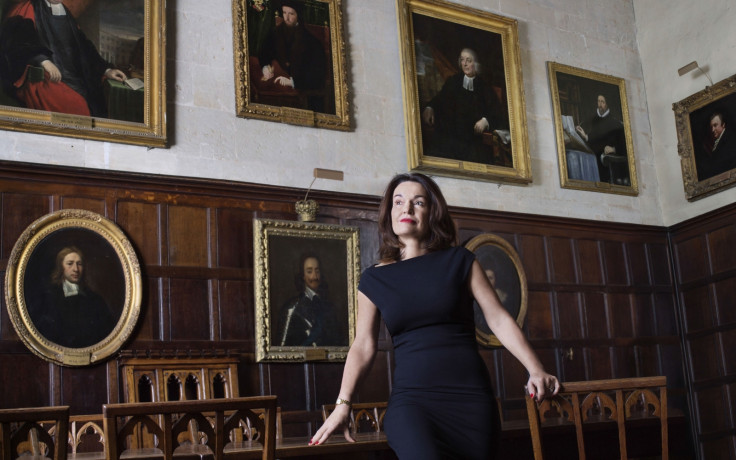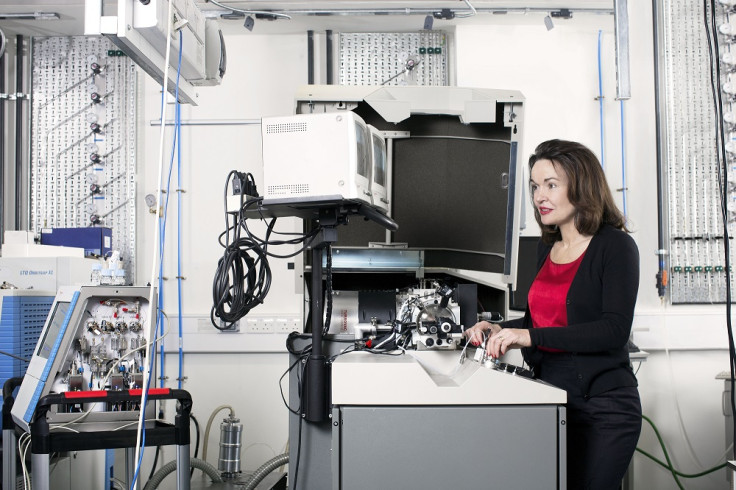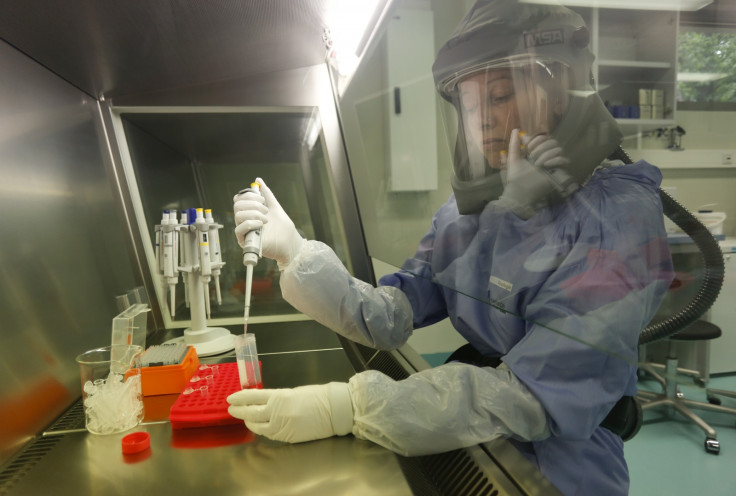Professor Dame Carol Robinson: Award-winning scientist who broke the glass ceiling at Oxbridge

It is understandable Professor Dame Carol Robinson, a world-class scientist and the first female professor of chemistry at the University of Oxford and the University of Cambridge, felt overwhelmed when she broke the glass ceiling at the prestigious institutions. "I remember feeling quite daunted," she says. "It felt as though I was an experiment and that my colleagues would be watching to see how I did – could a woman take on this role?"
Robinson, 58, pioneered the use of mass spectrometry as an analytical tool and conducted ground-breaking research into the 3D structure of proteins. Her research will assist a better understand of membrane proteins, which play a part in many human diseases and conditions, from cancer to schizophrenia. She was recently named the European Laureate for the L'Oréal-Unesco For Women in Science award.
Yet Robinson's formidable career is even more impressive when we consider the extent to which the scientific field is still dominated by men. Only 30% of the world's researchers are women. Prejudice and preconceptions about "male" and "female" careers still exist, overshadowing women in science.
"I also felt that it was quite sad that many amazing women before me had not been given the chance to be professors - they clearly deserved to be," Robinson says.
Women in science
There are far fewer women than men working in scientific, technological, engineering or mathematical careers. Only 13% of workers in these industries are women, according to the Women in to Science and Engineering (WISE) – one of the groups tackling the problem. One of the many reasons for this is the gender stereotyping of the interests of children: chemistry sets for boys, dolls for girls.
"It is very much perceived as a man's world and it really shouldn't be," Robinson says. "One of the main issues is the lack of role models with whom women can identify. When I was young there were none – apart from the obvious Dorothy Hodgkin or Marie Curie. Nowadays, we are seeing more women and I think programmes are helping to put women scientists on the world stage and to celebrate their successes."

Research has proved discrimination is still rife in the field, however. A 2012 study by Yale revealed scientists had been presented with application materials from a student applying for a lab manager position. Half the scientists were given the application with a male name attached, and half were given the exact same application with a female name.
Results found the "female" applicants were rated significantly lower than the "males" in competence, hireability and whether the scientist would be willing to mentor the student.
"In my career I benefited enormously from good mentoring and I feel this is an important part of getting women to stay, and progress, in science," Robinson says. "More programmes do now exist to address this but there is still a lot more we can do until we reach a stage when there is gender equality in science."
But has Robinson ever experienced discrimination for being a woman? "I don't feel I have been on the receiving end of explicit sexism per se, however, there have been moments in my career when there might have been unconscious bias or naïve comments," she says.
"A candidate's success is often assessed by how many scientific papers they have published over their career – the number of papers divided by years in research. However, if a woman has taken any time off to have children, or changed her surname as I did, they look less efficient at publishing.
"I have had times on panels where I have done the maths to project publishing rates without career breaks, to demonstrate that a woman candidate is equally as efficient at publishing as her male counterparts."
Early school leaver
In spite of the long list of distinctions, titles and awards Robinson has gained – she was made a fellow and research professor of the Royal Society in 2004 – Robinson did not pursue academia in a traditional way. When she passed her 11-plus, her parents were keen to send her to a technical school to learn domestic science, needlework and shorthand typing, but her interest in chemistry began early-on.
"I can remember being fascinated by the periodic table from a very early age. I loved patterns that it held and realised the enormity of what I was looking at," she explains. "When I left school aged 16, I just decided I would continue in science and I became a lab technician at Pfizer."
It was unusual for women at Robinson's school to attend university but she later realised she had the potential for higher education while working at Pfizer. "Later, I was encouraged to study for a degree part time and was eventually accepted to do a PhD at the University of Cambridge."

Robinson took eight years out to raise a family, returning to science to take up a junior position in the mass spectrometry unit at Oxford University. Balancing her family and career was the biggest challenge.
"Initially, I resolved this by giving up my scientific career for eight years; later, I managed to find the right balance between the two things that mattered most to me," she says. "I did this by working in the early hours of the morning – I wasn't missed at 5am! You have to work hard and juggle a bit, but it can be flexible so that you can fit in all your commitments."
Even now, Robinson manages to fit in time to do her favourite things: gardening, running, sewing and cooking for friends. "With my partner, we have travelled to places I have never been to before," she says. "I probably am at my happiest when any or all of our four children are with us."
L'Oreal-Unesco For Women in Science
For 17 years, the L'Oréal-Unesco For Women in Science programme has honoured female scientists from around the world. Robinson is one of the five leading women honoured this year, along with Moroccan Rajaâ Cherkaoui El Moursli, Chinese chemist Yi Xie, Brazilian astronomer Thaisa Storchi Bergmann and Canadian chemist Molly Shoichet.
"I was delighted when I learnt that I was to receive this award – it's a great honour," Robinson says. "I think it is a great idea that L'Oreal-Unesco is highlighting women scientists in this way. I hope it has a very positive effect on young women considering a career in science."
Robinson's award came as the British government launched its #notjustforboys campaign to highlight the contribution of female role models in fields such as science, engineering, construction and sport. A great advocate of these initiatives, Robinson has called for more women to train as scientists – no matter how daunting it may seem.
"I always felt confident in my work and what I was doing, but it was the personal confidence that I lacked. I felt that my unconventional start was a huge disadvantage," she says. "As I get older, and maybe wiser, I have become less worried about what people think of me and more confident to say what I really think."
And what advice would Robinson give to women interested in a career in science? "You can have a great career if you really enjoy it – there are so many positives about being a scientist," she says. "Don't think of it as being stuck in the lab all day. The opportunities to present your research, to interact at conferences and to carry out collaborations across the world are tremendously exciting."
© Copyright IBTimes 2025. All rights reserved.






















